Robert E. Lee |
| Biography | Quotes | Letters | Photos |
General Robert E. Lee, April 20, 1861 |
|||||||||
| Biography | |||||||||
|
|||||||||
|
|||||||||
| Source: Son of the South - Biography |
| Quotes |
|
| Source: Son of the South - Quotes |
| Letters |
| "I can anticipate no greater calamity for the country than the dissolution of the Union. It would be an accumulation of all the evils we complain of, and I am willing to sacrifice everything but honor for its preservation."
Col. Robert E. Lee, U.S.A. in a letter to his son Custis, January 23, 1861 - - - - - - - - - - - - - - - - - - -"I shall carry with me to the grave the most grateful recollections of your kind consideration, & your name & fame will always be dear to me. Save in the defense of my native State, I never desire again to draw my sword." Robert E. Lee to General Winfield Scott, "With all my devotion to the Union, and the feeling of loyalty and duty of an American citizen, I have not been able to make up my mind to raise my hand against my relative, my children, my home. I have, therefore, resigned my commission in the Army..." Robert E. Lee to his sister, Anne Marshall April 20, 1861 "It is believed that the enemy suffered severely in these operations, but our own loss has not been light. General Barksdale is killed. Generals Garnett and Armistead are missing as prisoners. Generals Pender and Trimble are wounded in the leg, General Hood in the arm, and General Heth slightly in the head. General Kemper, it is feared, is mortally wounded. Our losses embrace many other valuable officers and men. General Wade Hampton was severely wounded in a different action in which the cavalry was engaged yesterday." General Lee in a letter to President Jefferson Davis, "Abandon your animosities and make your sons Americans." Robert E. Lee, 1865; "You must remember me very kindly to Mrs. Longstreet and all your children. I have not had an opportunity yet to return the compliment she paid me. I had, while in Richmond, a great many inquiries after you, and learned that you intended commencing business in New Orleans. If you become as good a merchant as you were a soldier, I shall be content. No one will then excel you, and no one can wish you more success and more happiness than I. My interest and affection for you will never cease, and my prayers are always offered for your prosperity." Robert E. Lee in a letter to James Longstreet, "My Dear Mrs. Davis: Your letter of the 12th inst. reached Lexington during my absence at Washington. I have never seen Mr. Colfax's speech, and am, therefore, ignorant of the statements it contained. Had it, however, come under my notice, I doubt whether I should have thought it proper to reply. I have thought, from the time of the cessation of hostilities, that silence and patience on the part of the South was the true course; and I think so still. Controversy of all kinds will, in my opinion, only serve to continue excitement and passion, and will prevent the public mind from the acknowledgment and acceptance of the truth. These considerations have kept me from replying to accusations made against myself, and induced me to recommend the same to others. As regards the treatment of the Andersonville prisoners, to which you allude, I know nothing and can say nothing of my own knowledge. I never had anything to do with any prisoners, except to send those taken on the fields, where I was engaged, to the Provost Marshal General at Richmond. I have felt most keenly the sufferings and imprisonment of your husband, and have earnestly consulted with friends as to any possible mode of affording him relief and consolation. He enjoys the sympathy and respect of all good men; and if, as you state, his trial is now near, the exhibition of the whole truth in his case will, I trust, prove his defense and justification. With sincere prayers for his health and speedy restoration to liberty, and earnest supplications to God that He may take you and yours under His guidance and protection, I am, with great respect, Your obedient servant, Robert E. Lee, Letter to the wife of Jefferson Davis, "...The duty of its citizens, then, appears to me too plain to admit of doubt. All should unite in honest efforts to obliterate the effects of the war and to restore the blessing of peace. They should remain, if possible, in the country; promote harmony and good feeling, qualify themselves to vote and elect to the State and general legislatures wise and patriotic men, who will devote their abilities to the interests of the country and the healing of all dissensions. I have invariably recommended this course since the cessation of hostilities, and have endeavoured to practise it myself...." Robert E. Lee, letter to Governor Letcher |
| Source: The American Civil War |
Photos |
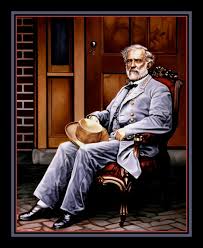 |
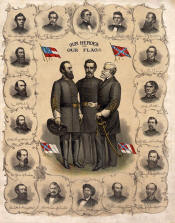 |
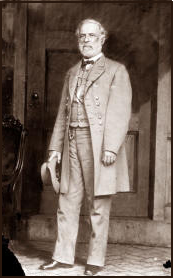 |
||
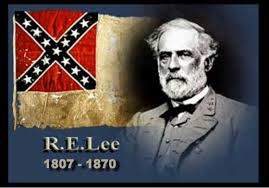 |
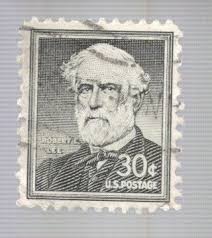 |
|||
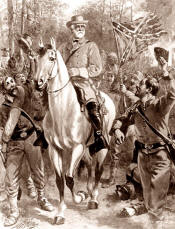 |
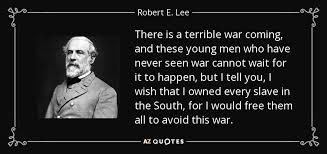 |
|||
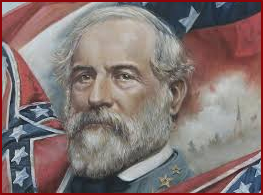 |
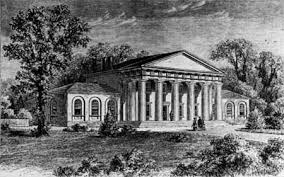 |
|||
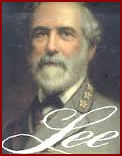 |
 |
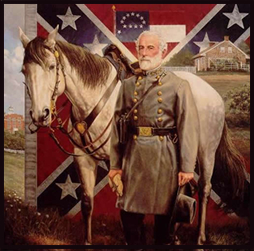 |
||
 |
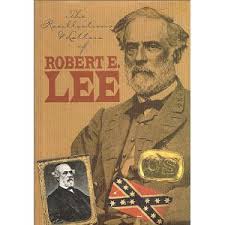 |
 |
||
| Source: Son of the South |